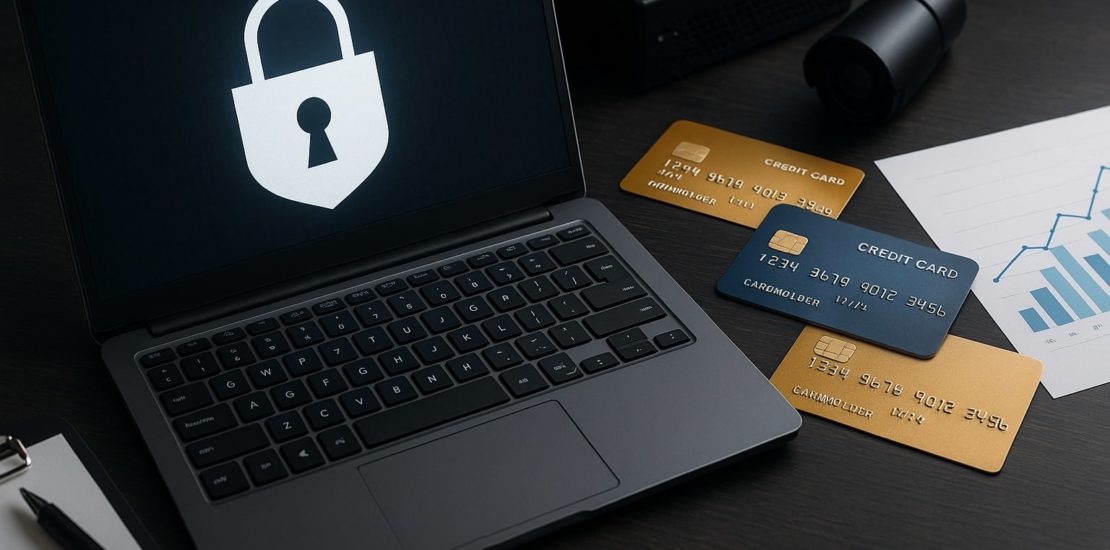AI Tools for Streamlining PCI DSS Compliance: Are They Worth It?
- June 26, 2025
- Posted by: Gradeon
- Category: Compliance

For many UK businesses handling cardholder data, PCI DSS compliance is not just a technical necessity—it’s a vital foundation for maintaining trust, managing risk, and ensuring operational continuity. However, the path to compliance is often complicated, labour-intensive, and constantly challenged by emerging security threats.
Enter AI-powered tools—promising automation, smart threat detection, and operational efficiency. But can artificial intelligence really simplify PCI DSS compliance? And more importantly, is it worth the investment for your organisation?
Let’s explore how AI tools are reshaping compliance strategies—and whether they’re a worthwhile addition to your business toolkit.
What Is PCI DSS Compliance?
PCI DSS is a set of security standards established by the PCI Security Standards Council. It’s designed to ensure all businesses that process, store, or transmit credit card information maintain a secure environment. Non-compliance can lead to regulatory fines, legal exposure, reputational harm, and even the loss of merchant privileges.
Achieving and maintaining compliance involves:
- Conducting regular risk assessments
- Implementing robust access control
- Encrypting and securing data transmission
- Continuous monitoring and logging
- Undergoing routine audits and validation
For many businesses in London and across the UK, meeting these requirements often demands extensive manual effort or external support.
The Emergence of AI in PCI DSS Compliance
How AI Supports Compliance
AI tools are not here to replace PCI DSS (Payment Card Industry Data Security Standard) —they are here to augment it. These tools serve as digital assistants, capable of automating tedious tasks, detecting anomalies in real time, and enhancing overall accuracy. Key applications of AI in PCI compliance include:
- Automated log reviews
- Advanced threat detection
- Continuous vulnerability scanning
- Risk-based scoring and prioritisation
- Sensitive data discovery and classification
By integrating AI, compliance teams can free up time and make smarter, faster decisions.
Advantages of Using AI Tools for PCI DSS
1. Speed and Accuracy in Threat Detection
Manual log analysis is prone to human error. AI can analyse vast datasets in real time, instantly flagging suspicious patterns or breaches that may violate PCI requirements. This proactive approach significantly reduces your exposure window to threats.
Example: An AI-enabled SIEM (Security Information and Event Management) system might detect an unauthorised access attempt or the storage of unencrypted cardholder data—well before a human would spot it.
2. Operational Cost Savings
Although AI tools require upfront investment, they reduce long-term costs by automating tasks that would otherwise demand significant staff hours or outsourced consultancy. This is particularly beneficial for growing businesses who want to scale securely.
3. Better Audit Preparation and Reporting
AI tools can maintain detailed logs, audit trails, and compliance checklists that align with PCI DSS control requirements. This makes audit preparation faster and less stressful, while ensuring you stay on the right side of regulatory bodies.
Common AI Tools That Support PCI DSS
While no AI platform offers full automation of PCI DSS compliance, several tools are invaluable in supporting key areas:
● Darktrace
Uses self-learning AI to monitor network behaviour and detect anomalies in real time—crucial for PCI DSS Requirement 10 (monitoring access to network resources).
● Rapid7 InsightIDR
Offers intelligent log analysis, file integrity monitoring, and threat detection—all core to PCI DSS compliance.
● SecurityScorecard
Continuously evaluates your and your vendors’ security posture, offering actionable insights and helping meet third-party risk requirements.
● Symantec Data Loss Prevention (DLP)
Automatically identifies and protects sensitive data, reducing the risk of accidental cardholder data exposure.
Are AI Tools Worth the Investment?
The answer depends on several factors: the size of your organisation, your current compliance posture, and available in-house resources.
✅ Worth the Investment If:
- Your organisation handles a significant volume of cardholder data.
- You face repeated compliance challenges or failed audits.
- Your internal teams are overwhelmed with manual PCI-related tasks.
- You require visibility across multiple locations or third-party vendors.
❌ May Not Be Necessary If:
- You process minimal payment data and rely on third-party gateways.
- Your compliance processes are already streamlined and effective.
- You have dedicated support from a PCI QSA or external consultancy.
In London, UK, where financial and fintech regulations are particularly strict, AI tools can be a valuable addition to demonstrate due diligence and future-proof your compliance strategy.
Considerations Before Investing
While AI tools are promising, they come with certain caveats:
- False Positives: AI can generate too many alerts, overwhelming small teams.
- Interpretation Limitations: AI cannot interpret nuanced regulatory language.
- Data Privacy: Ensure AI tools comply with relevant privacy laws like the UK GDPR and the Data Protection Act 2018.
AI tools must be paired with proper training, governance, and human oversight to be truly effective.
Final Thoughts: A Strategic Addition, Not a Silver Bullet
AI tools have the potential to make PCI DSS compliance more efficient, less manual, and ultimately more effective. They offer value in threat detection, risk management, and audit preparation—but should be seen as complementary, not standalone solutions.
For UK businesses aiming to stay compliant, secure, and scalable in a fast-changing digital environment, investing in AI for compliance is increasingly becoming a smart and strategic move.
Need Help Choosing the Right AI Tool for Compliance?
At Gradeon, we support UK businesses with tailored PCI DSS compliance services, AI tool integration, and ongoing risk management. Whether you’re in London or across the country, our specialists help you stay secure and audit-ready—efficiently.
Get in touch today to explore how we can support your compliance strategy in 2025 and beyond.
